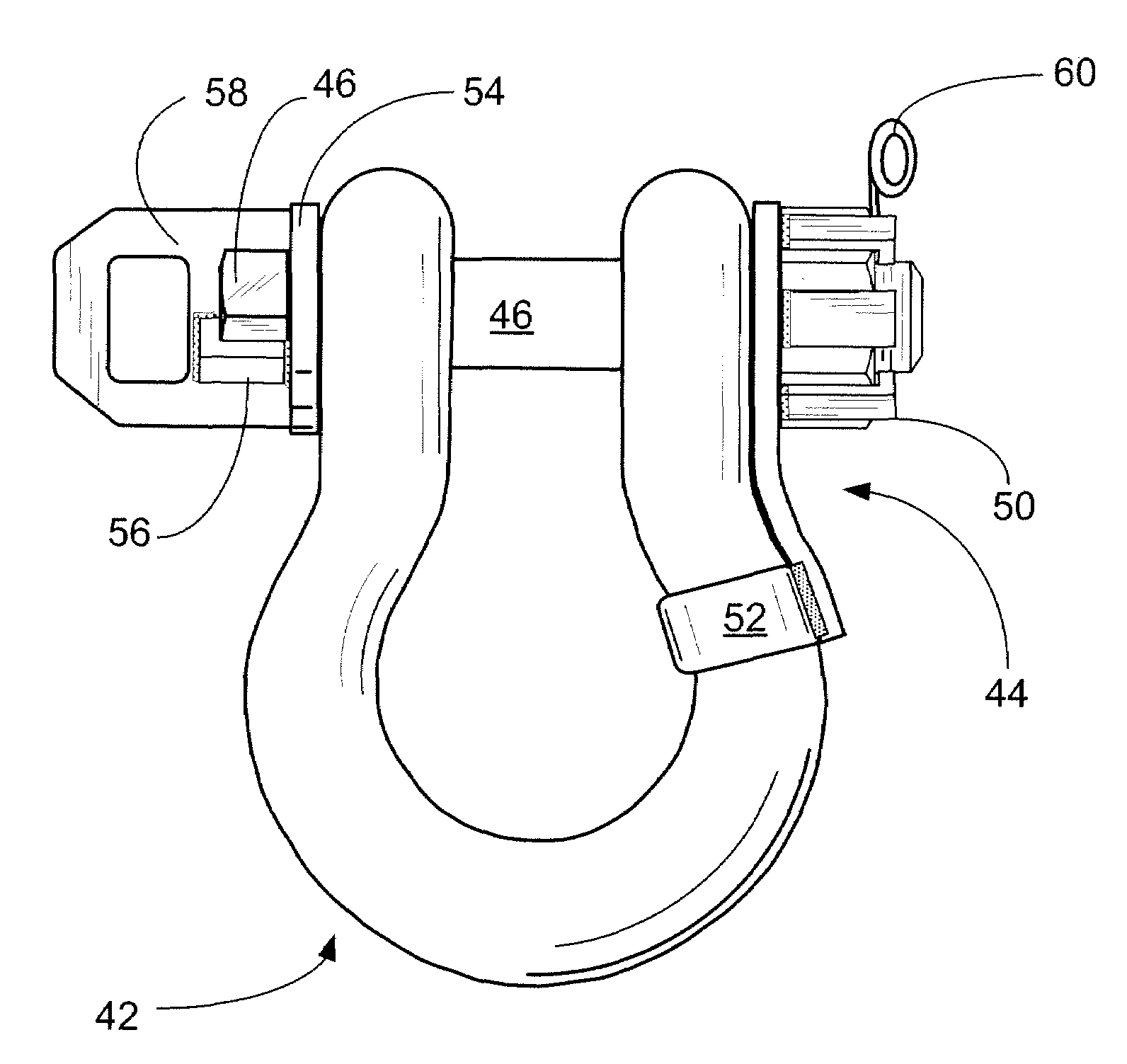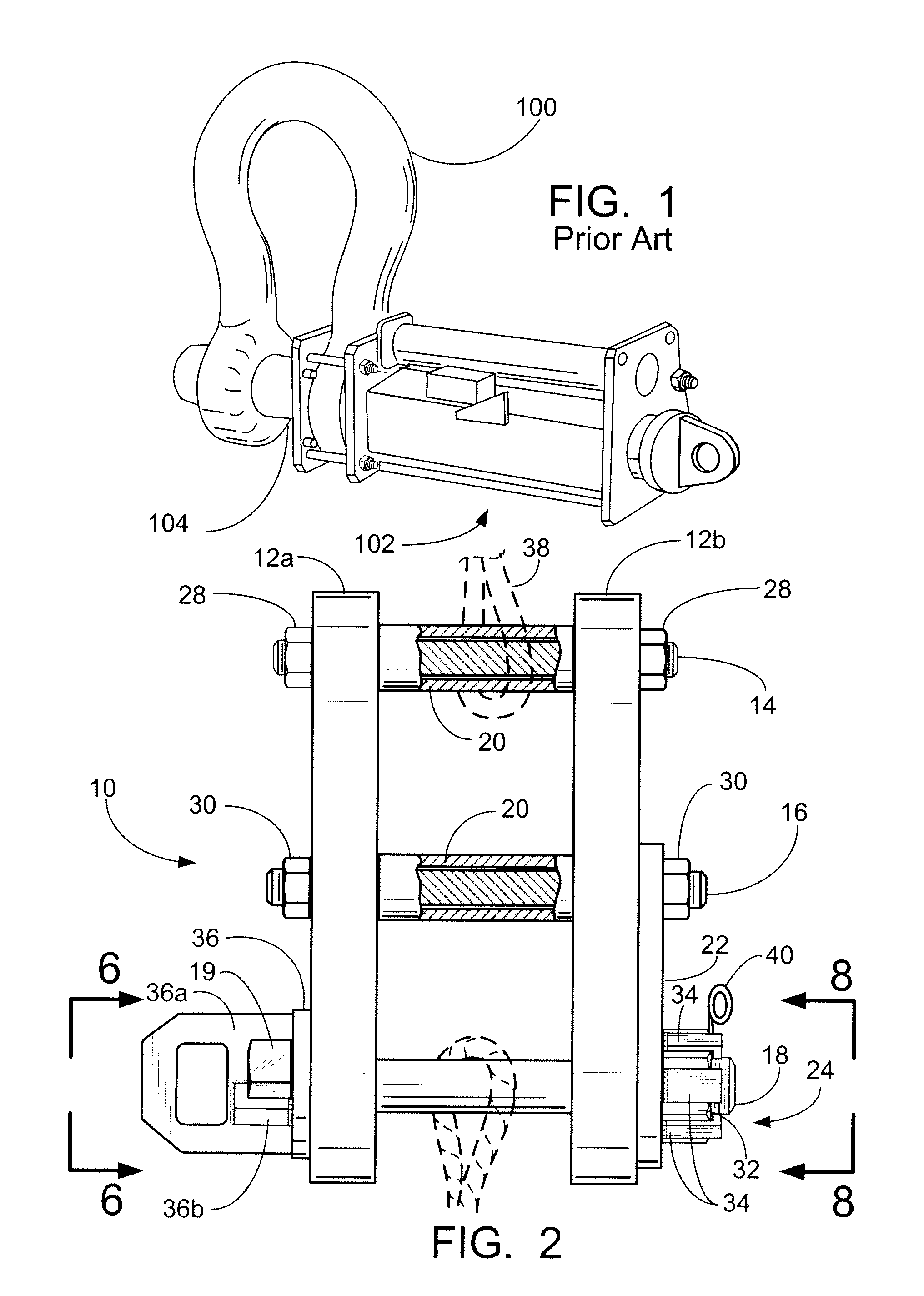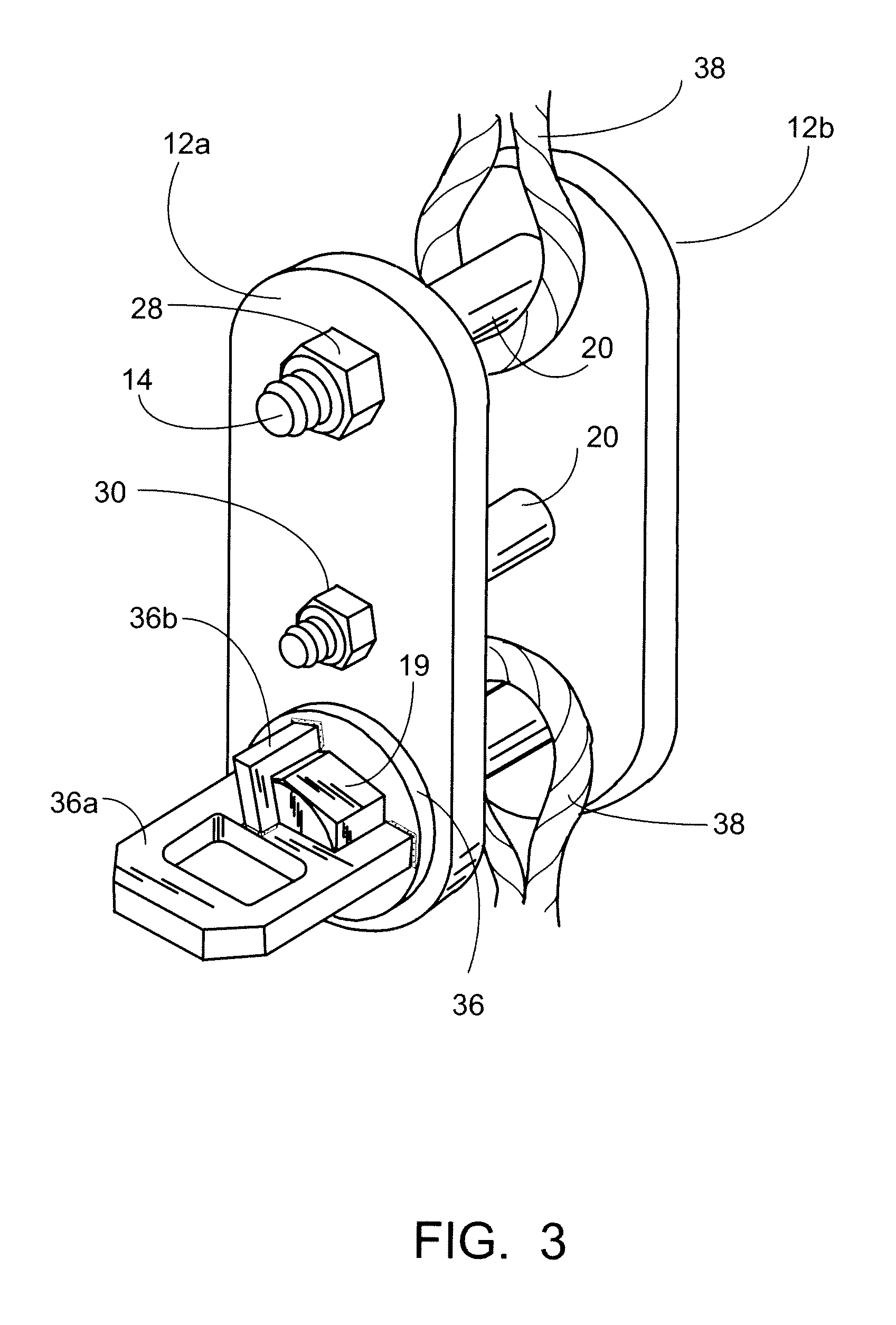Mechanically releasable shackle pin
- Summary
- Abstract
- Description
- Claims
- Application Information
AI Technical Summary
Benefits of technology
Problems solved by technology
Method used
Image
Examples
Embodiment Construction
[0019]FIG. 1 illustrates a prior art hydraulic release mechanism. A shackle 100 has a hydraulic cylinder 102 attached thereto. The ram 104 of the hydraulic cylinder 102 extends through the bores in the shackle and acts as the release pin for supporting, lowering, and releasing a load.
[0020]The invention is generally directed to a shackle arrangement that provides for the mechanical gripping, rotation, and removal of a shackle pin from a shackle arrangement, means for capturing the shackle nut to prevent loss, and means for preventing rotation of the shackle nut during rotation of the shackle pin. The invention may be practiced with the different embodiments illustrated in FIGS. 2-8 of a specially constructed arrangement or as illustrated in FIGS. 9-10 by the modification of a pre-existing shackle arrangement. Both embodiments are described below.
[0021]As seen in the embodiment of FIGS. 2-4, mechanically releasable shackle 10 is generally comprised of two main side plates 12a, b, bol...
PUM
 Login to View More
Login to View More Abstract
Description
Claims
Application Information
 Login to View More
Login to View More - R&D
- Intellectual Property
- Life Sciences
- Materials
- Tech Scout
- Unparalleled Data Quality
- Higher Quality Content
- 60% Fewer Hallucinations
Browse by: Latest US Patents, China's latest patents, Technical Efficacy Thesaurus, Application Domain, Technology Topic, Popular Technical Reports.
© 2025 PatSnap. All rights reserved.Legal|Privacy policy|Modern Slavery Act Transparency Statement|Sitemap|About US| Contact US: help@patsnap.com



